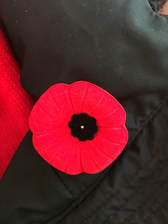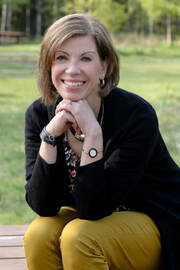
The most recent count that I could find stated that there are approximately 61 000 World War II Veterans living (as of March 2016). This is out of the approximate one million who served. It is inevitable that this number will dwindle rapidly in the next decade. As such, it is important that we learn as much as we can from these Canadians while we still have their first-person accounts.
One of the things that has struck me as I have watched news reports featuring veterans from WWII , and as I heard stories from much younger veterans, like the ones who participated in the Invictus Games this fall, is that while they were serving, they had to be on high alert. They knew they had to have the ability to act almost reflexively. They, in service to our country, gave up the luxury of slowly thinking things through. They were trained to assess and react; to obey and to trust; to remain vigilant and to be ever watchful. Many of them payed the biggest price for this service, others have come home with minds that don’t seem to know how to turn off the high alert mode, and they struggle to figure out a way to fit in, in a world that seems to have sounds and triggers they thought they had left behind.
Because of their service, the rest of us have the luxury of not living in a state of high alert. Very rarely do we find ourselves in situations where we need to react instantly, to obey with complete trust or to remain vigilant for weeks upon weeks. And yet, as a nation, this is exactly the behaviour that we seem to be choosing. When we hear someone give an opinion that we disagree with, be it one about politics, pipelines, religion, education, women, men, immigration or art, we seem to have become a nation of people who jump to their post to find fault with, and then attack, what has been said. We attack with printed words on social media and we attack with verbal words in person. We do not take time to ponder the effect of our words. We do not consider that it is possible to listen to an opinion that is different from our own without hating the speaker and without acting upon that hate with our quick words.
As I think about Remembrance Day, I can’t help but think how disappointing it might be for a soldier to watch us as we indulge ourselves with the unnecessary battle lines we have drawn for ourselves. I can’t believe that any soldier dreamed that by serving his or her country, the reward would be for them to come home to a country that seemed to make a sport out of warring with each other. Our soldiers fought and died so that we could have freedom. Freedom to live in a peaceful society and freedom to express ourselves. But they did not fight so that we too could become ‘soldiers’, always at the ready to fight off any opinion that is different from our own.
We don’t need to look too far south to recognize where some of this stems from. If there were an Olympics for dividing a county, our neighbours would have a good chance of winning a gold medal. They have become experts on demanding that people take a side. They must choose Democrat or Republican. And once the choice is made, heaven forbid that they take time to understand the other side. They are either pro-guns or anti-guns. Pro-wall or anti-wall. There is no fence sitting on these issues. On and on and on it goes. And we as Canadians have a front row seat. It is not surprising then that some of this behaviour has rubbed off on us.
In Calgary, along Memorial Drive, hundreds of white crosses are erected each year; one for each local soldier who sacrificed his or her life in one of the wars. Citizens of our city are encouraged to walk among the crosses, to read the inscriptions, and to stay for one of the services. Each year, this memorial, this quiet place along a busy road, is constructed with love.
As we have walked through it each year, I have wondered what it must be like to see the crosses in Flanders Fields. And this year I wondered what would happen if two Canadians, with very different points of view stood in the quiet of Flanders Field, where poppies blow between the crosses, with a few rows of crosses separating them. I wonder if one of them would hurl insults at the other, and then the other fire one right back. Or perhaps they would stand side by side in silence. Or perhaps they would have a conversation and really try to understand a different point of view. I imagine that in the quiet of this almost sacred place, there would be no insults hurled. There would be no right-fighting. There would be no forcing of one opinion onto the other. There would be no volleying of hate as they stood in Flanders Field, between the crosses. We might remember that John McRae asked to take up our quarrel with our foe. He did not ask that we take up our quarrel with anyone who has a different thought.
May we never forget, the service and the sacrifice that our Canadian soldiers gave for us. May we be thankful for their willingness to stand on high alert so that we would not have to.
As I go about my daily interactions this week, before I speak too quickly, or with too much force, I will imagine that I and whomever it is I am speaking to, are walking softly in Flanders Field. Where poppies blow between the crosses. It could just be that this is the tone that I need to use most often and it may remind me that I can like and be kind to people with differing opinions than my own.
Lest I forget.
Book a coaching session with Elizabeth to help learn how to take control of who you choose to be. Elizabeth provides coaching for individuals and for groups. She also facilitates custom workshops for teams, groups and businesses.


 RSS Feed
RSS Feed